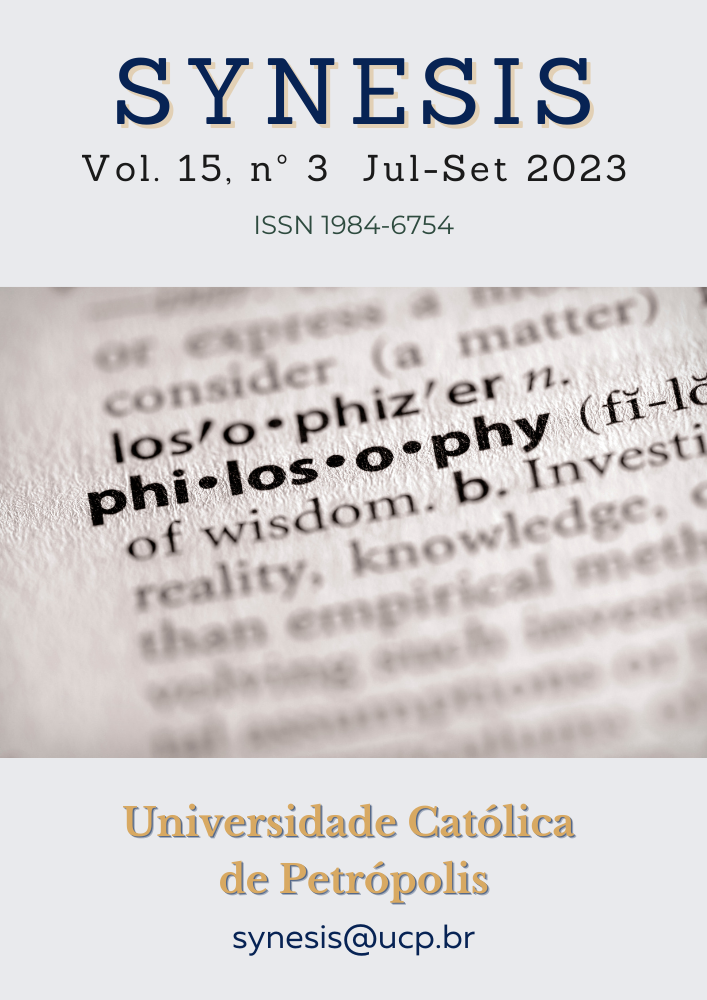Abstract
The article carried out a comparative interdisciplinary analysis of education quality systems, to identify and substantiate the scientific and applied foundations of pedagogical support for the quality of education in a university, to determine and clarify its basic categories. The concept of pedagogical support of the quality of education and a model of its practical implementation in the conditions of the university have been developed. The effectiveness of pedagogical support of the quality of education in a higher educational institution has been experimentally investigated. The main directions of improving the effectiveness of pedagogical support of the quality of education in the university are substantiated, and a set of recommendations, educational and methodological materials on the use of the proposed pedagogical tools are developed.
References
Bystrova, Yu. (2015). Innovative teaching methods in higher education in Ukraine. Pravo ta innovatsiine suspilstvo, 1(4), 27–33
European Parliament. (2022). Russia's war against Ukraine: Ukrainian students in the EU.https://ukraine.europarl.europa.eu/cmsdata/250612/0134_Briefing_Ukrainian_studen ts.pdf.
Iasechko S., Pereiaslavska S., Smahina O., Lupei N., Mamchur L. and Tkachova O. (2022) Artificial intelligence in the modern educational space: problems and prospects IJCSNS International Journal of Computer Science and Network Security. Vol. 22 No. 6, pp. 25-32. https://doi.org/10.22937/IJCSNS.2022.22.6.5
Kim,T. (2017). Academic mobility, transnational identity capital and stratification under conditions of academic capitalism. Higher Education, 73, 981–997. Available at: https://doi.org/10.1007/s10734-017-0118-0
Liu,D., Che,S.,& Zhu,W. (2022). Visualizing the Knowledge Domain of Academic Mobility Research from2010 to2020: A Bibliometric Analysis Using Cite Space. SAGEOpen.Availableat:https://journals.sagepub.com/doi/10.1177/21582440211068510
Liu,S., Liang,W., Onuma,M., & Rithkerd,T. (2022). A study of the academic challenges faced by the Western students in Chinese universities. International JournalofEducationalDevelopment,90.Availableat:https://doi.org/10.1016/j.ijedudev.2022.102557
Silva,M., Arruda,M., Zwierewicz,M., Stefenon,S., Ferreira,F., Klaar,A., & Yamaguchi,C. (2020). The Mobility of Professors in Performing Distance Education Activities. International Journal for Innovation Education and Research, 8(4), 514–526. Available at: https://www.academia.edu/es/45194773/The_Mobility_of_Professors_in_Performing_Distance_Education_Activities
Stoicheva,M. (2022). Academic Cooperation and Mobility: in the Context of the COVID-19 Pandemic. “Az-buki” Newspaper, 94(3), 25–33. Available at: https://doi.org/10.53656/ped2022-3s.02
Tsilmak, O., Iasechko, S., Poplavska, M., Motlyakh, O., & Kabanets, O. (2022). Modern innovative forms of teaching law at other schools in ukraine. Revista Eduweb, 16(4), 166-177. https://doi.org/10.46502/issn.1856-7576/2022.16.04.14
Vladimirova V.I. (2018). Innovative technologies in the system of training future lawyers. Proceedings. Series: Law. Issue 5. рр.15 - 21. [In ukranian]
Freudenberger, H.J. (1975). The staff burn-out syndrome in alternative institutions. Psychotherapy: Theory, Research & Practice, 12(1), 73–82. https://doi.org/10.1037/h0086411
Grant, A.M. (2013). Outsource inspiration. In J.E. Dutton, & G. Spreitzer (Eds.), Putting positive leadership in action. Retrieved from https://faculty.wharton.upenn.edu/wp- content/uploads/2013/12/Grant_OutsourceInspiration.pdf
Jiang, X-R., Du, J-J., & Dong, R-Y. (2017). Coping style, job burnout and mental health of university teachers of the millennial generation. Eurasia Journal of Mathematics Science and Technology Education, 13(7), 3379–3392. https://doi.org/10.12973/eurasia.2017.00734a
Keller, J., & Kesberg, R. (2017). Regulatory focus and human values. Psihologija, 50(2), 157–186. https://doi.org/10.2298/PSI160809004K
Mancini, G., Mameli, C., & Biolcati, R. (2022). Burnout in Italian Primary Teachers: The Predictive Effects of Trait Emotional Intelligence, Trait Anxiety, and Job Instability. Europe’s Journal of Psychology, 18(2), 168–180. https://doi.org/10.5964/ejop.2685

This work is licensed under a Creative Commons Attribution-NonCommercial-NoDerivatives 4.0 International License.
Copyright (c) 2023 Synesis (ISSN 1984-6754)

